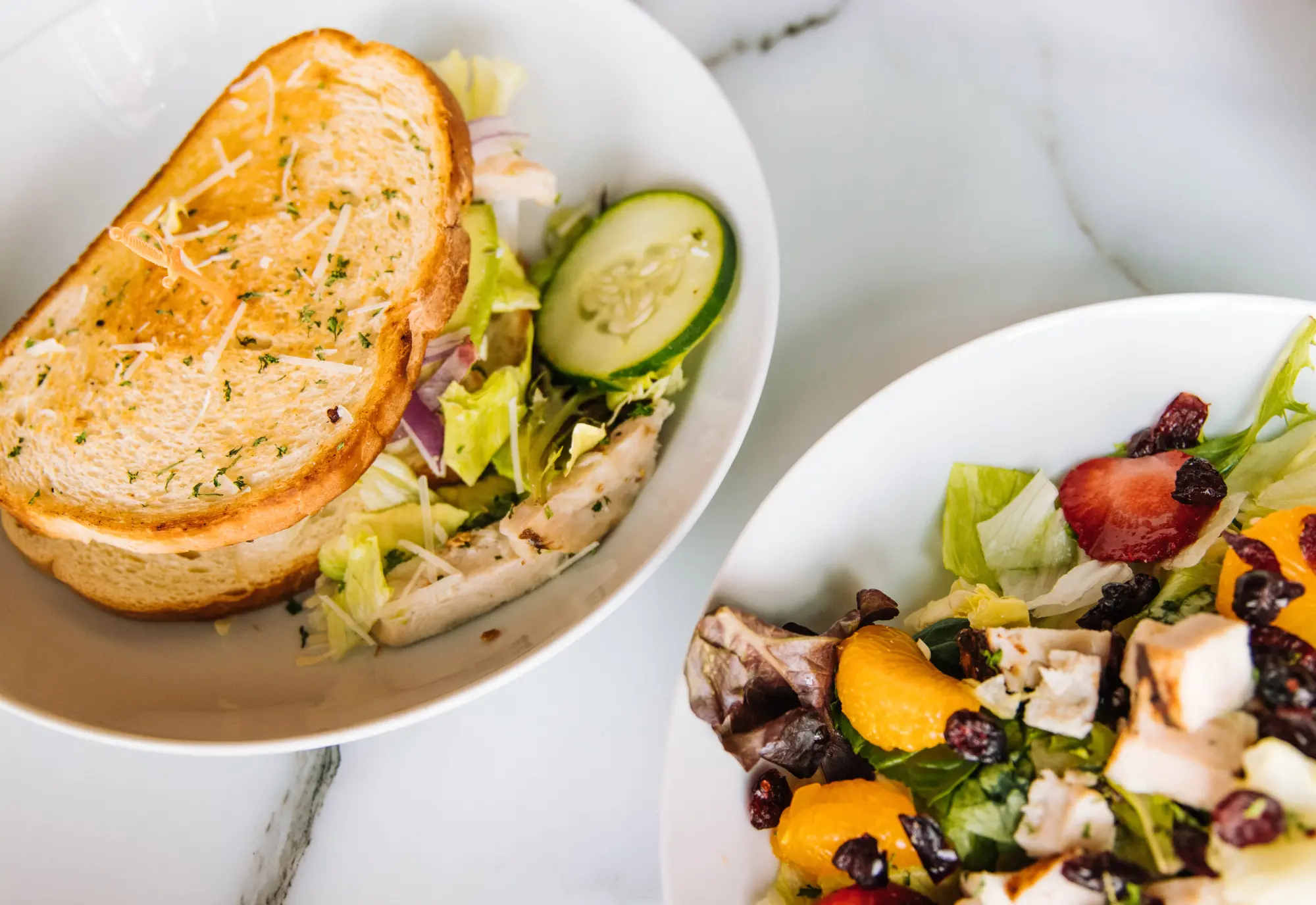Our last example for the purposes of this article is our reformulated chicken club sandwich recipe. Another staple of casual dining, our club sandwich was carefully reworked to provide a healthier, more sustainable alternative.
The changes we made are as follows:
- Two bacon rashers that were fried in corn oil were changed to one rasher that was grilled
- Two medium slices of white bread were used instead of three medium slices of white bread
- 100g of chicken breast that was fried in corn oil was replaced with 60g of grilled chicken breast
- 30g of English Cheddar cheese was used instead of 40g
- 25g lettuce was increased to 50g lettuce
- 22g of mayonnaise was reduced to 10g
- The portion of chips was reduced from 256g to 100g
- A side salad was added, consisting of red onion and mixed salad leaves

Reformulation results: nutritional profile
We saw a considerable reduction in calories and fat, with the reformulated dish clocking in at 873 kcals compared to 1,589 — a reduction equivalent to 3 x 100ml chocolate-coated ice creams! At the same time, saturated fat dropped from 25g to just 11g, and salt from 4.8g to 3g.
Reformulation results: sustainability
The environmental impact of the dish also saw big changes, with the Foodprint sustainability score moving from an E to a D. Greenhouse gas emissions were slashed from 1.69kg to 1.12kg. The CO2 saved per serving would have taken a tree 9.5 days to absorb.
In addition, the water saved per serving was reduced from 1,631L to 917L — a saving equivalent to spending 48 minutes in the shower.
Reformulation results: production cost
The reformulated recipe also translates into real business savings. The original recipe was costed at €3.92* per serving, while the reworked version costs just €2.20. Assuming 50 orders per day, this adds up to a monthly saving of €2,580.
*Costs based on published supermarket cost prices for ingredients used.
Looking at these figures, it’s clear that reformulating recipes has the potential to benefit general health, reduce your impact on climate change and provide considerable savings to your business.
